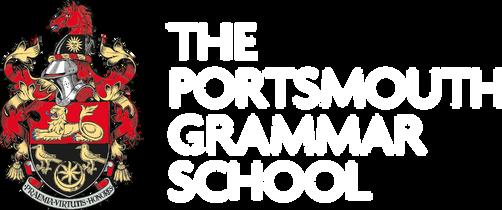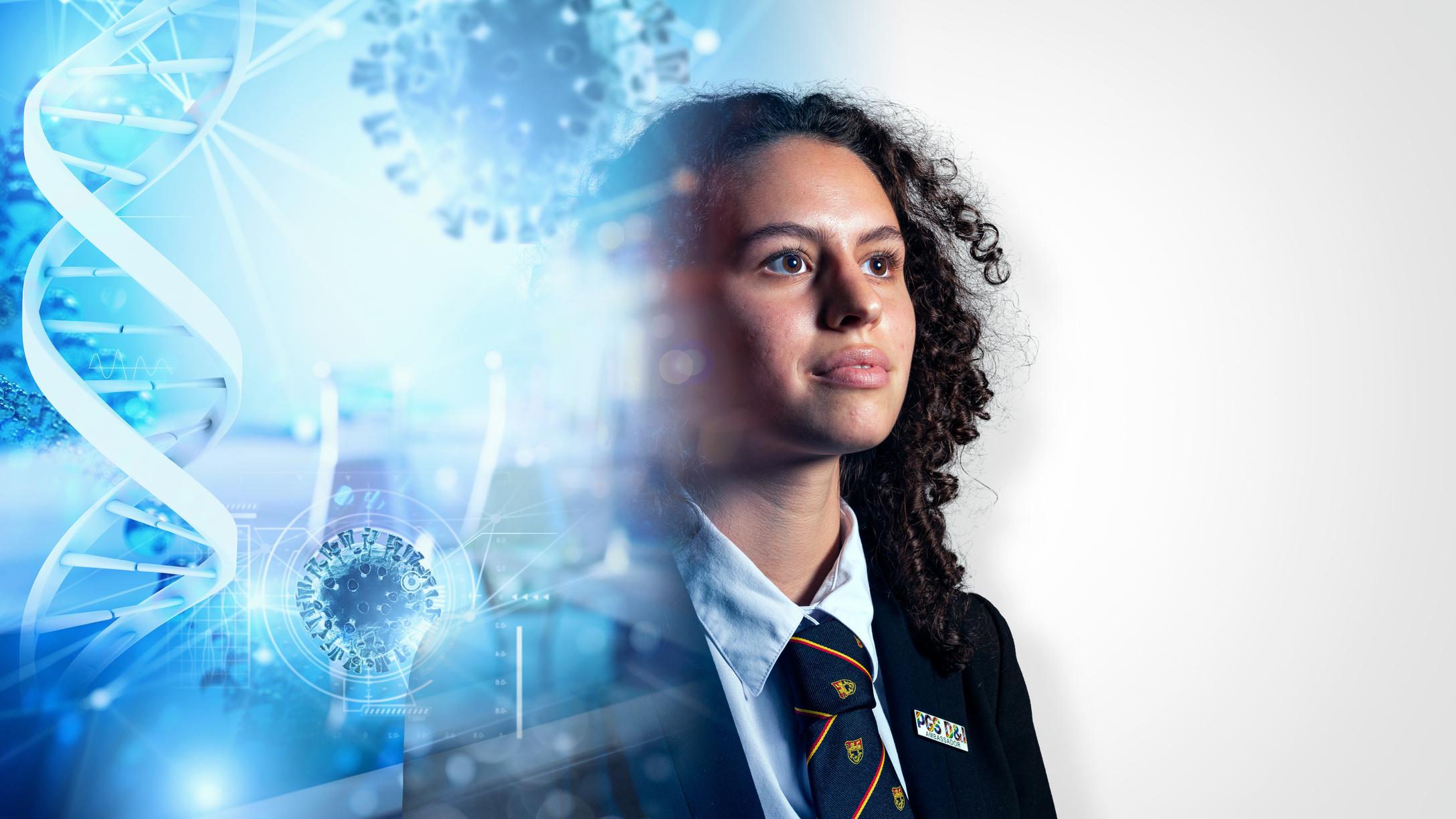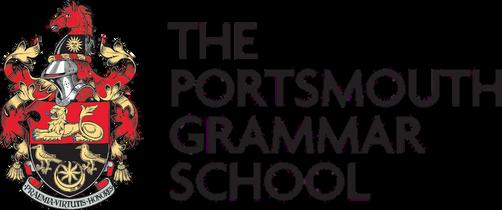The Science Department
Science is a key component of the curriculum at the school with high levels of uptake at A Level; approximately half of pupils leaving PGS in Year 13 go on to study a science-related course at university.

The Biology, Chemistry and Physics departments are located in a state-of-the-art Science Centre with dedicated laboratories over three floors and a large Science lecture theatre. At all levels of the school, each science is taught by subject specialists and as a separate subject within the Science Department.
All Year 7 and 8 pupils study a balanced Science programme, consisting of a combined Physical Science (Physics and Chemistry) course and Biology.

All Year 9 pupils begin study of their Science GCSEs; in Years 10 and 11 pupils are separated into ability bands leading to awards in either Combined Science or Triple Sciences. GCSE Science is currently taught to the AQA specification.
Practical work at all levels is encouraged. Teachers are expected to differentiate and assess appropriately and to use a variety of teaching and learning styles to maximise pupil progress.Technology, and particularly the use of devices, is becoming increasingly embedded in day-to-day teaching; Year 9-13 pupils bring their own device to lessons, so candidates with good knowledge of ICT and its effective use in the classroom are particularly encouraged to apply.
The department is supported by a team of specialist technicians.
The Physics Department
The department has six full-sized laboratories. Practical work at all levels is an integral part of lessons and the department is very well resourced, with a wide range of facilities including Picoscopes, a suite of laptops with extensive data logger software suite.
In the Sixth Form, over 30 pupils opt to take A Level Physics, following the OCR Physics A specification. In addition, where timetabling allows, a smaller number of pupils opt to take A Level Electronics, following the EDUQAS specification.

Several pupils go on to Oxbridge success in Engineering and Physics. PGS has participated in the Physics Olympiad since its inception and pupils routinely receive medals in this national competition.
The Physics Department has active links with local businesses and regularly host the Lockheed Martin engineering Challenge and take part in Women in STEM competitions to encourage girls into pursuing Physics and Engineering beyond school. Physics teachers run several clubs, including Astronomy and Electronics and there are opportunities to introduce significant stretch and challenge for all year groups.
The Chemistry Department
The department has five full-sized dedicated Chemistry laboratories, along with a specialised A Level Lab. Practical work is well developed, and creative experimental work is an expectation at all levels. There is good access to a wide range of resources to assist in teaching and learning, including an FTIR spectrometer available to pupils.

The department currently has approximately 70 pupils studying the AQA A Level course across Year 12 and Year 13. Several pupils go on to Oxbridge success in Chemistry, Medicine and Natural Sciences. There is also a record of success in competitions such as the Chemistry Olympiad, the C3L6 Chemistry Challenge with numerous Gold’s and Roentgenium’s in previous years.
In addition, there are enrichment opportunities as part of the RSC Schools’ Analyst Challenge and twilight sessions at the University of Southampton. The school has also hosted the regional Top of the Bench competition for the last decade along with being a host site for professional lectures from the RSC. There is a Further Chemistry group investigating techniques beyond the A Level syllabus that meets weekly.
The Biology Department
The department has seven full-sized dedicated Biology laboratories, two dedicated preparation rooms, a greenhouse and a galleried seating area which all provide a first-rate learning environment. All laboratories are furnished with the expected ICT facilities, plasma screens and digital microscopes; there is also a suite of iPads available. The Department has a resource area for plant life and a pond on the school site.
In the Sixth Form, between 30 and 50 pupils opt to take A Level Biology, following the AQA specification.

The Biology Department is active in hosting innovative whole-school and cross-curricular activities and external speakers. There is a thriving Wildlife Club and opportunities to introduce significant stretch and challenge for all year groups. PGS has participated in the Biology Olympiad since its inception and pupils routinely receive medals in this national competition. All of Year 10 enter the Biology Challenge competition and, again, routinely achieve medals.

Line Management Responsibility
This role has line management responsibility for the Physics Department which, in addition to the Head of Department, consists of 3 full-time teachers (one of whom is Second in Department), 2 part time teachers and members of the science technician team.
Main duties and responsibilities
All staff are expected to promote and safeguard the welfare of children and young people for whom they are responsible and with whom they come into contact.
The role of the Head of Department as a Middle Leader at PGS is central to the success of the school because they ensure that their team works effectively to provide an excellent education for the pupils. They are highly valued for their professionalism, experience and determination to ensure that PGS maintains its position as one of the country’s leading co-educational schools. They combine good organisational skills with the ability to lead a team and inspire pupils.
All staff are expected to contribute to the wider co-curricular life of the school.
Line management duties and responsibilities
Leadership and Management
Provide professional leadership and management to secure high-quality teaching, effective use of resources and improved learning and achievement for all pupils in an attractive physical environment
Plan with the members of their department for the development of the department and to write an annual strategic development plan in consultation with the team and within the framework of the School’s aims, strategic intentions and annual operational plan.
Maintain appropriate links with, and report to, governors when requested.
Take part in the appointment of staff to the department and other areas of the school if appropriate.
Promote CPD and training opportunities for the department and give or arrange for other support that may be necessary to ensure core teaching standards are met and the career aspirations of departmental colleagues are supported.
Monitor systematically the quality of teaching and learning in the department and give feedback that enables further improvement.
Ensure effective induction of new departmental colleagues and initial teacher training and mentoring of ECTs as required.
Appraise department members in a constructive manner on an annual (for professional development purposes) and triennial (for performance management) basis and complete the relevant documentation in partnership with the appraisee.
Be prepared to be appraised biennially by their SMT line manager in accordance with school policy.
Keep abreast of national and international trends and developments in education that are relevant to their subject and pedagogical initiatives, sharing these with departmental and other colleagues and using these to inform wider school policy as appropriate.
Produce a departmental handbook, or the separate key documents therein, according to school guidelines, review this annually and amend when required; make a copy available to department members and to SMT, governors and inspectors as required.
Curriculum
Work collaboratively with the whole department to maintain and develop schemes of work within the framework and requirements of examination boards that reflect best teaching practice.
Arrange, in consultation with members of the department, the deployment of colleagues to the timetable to meet pupils’ learning needs and the professional development needs of staff.
Ensure that lesson planning and delivery of all lessons take account of the needs of all pupils, including effective strategies for inclusion for those with AEN and MAGT pupils.
Ensure good practice from within and outside the department is shared so that lessons are engaging, varied and stimulating.
Review and share baseline and value-added data with department colleagues for all pupils and add subject data to maintain an up-to-date department record of pupil attainment and progress.
Ensure that assessment of pupils’ work is regularly carried out – including (but not limited to) cross-cohort assessments in line with school policy – and give guidance to pupils on their level of performance and how to improve using coaching-style approaches.
Ensure that pupils are prepared for internal and external examinations, that all internal exam papers are prepared to deadlines and are appropriately differentiated and that analyses of all results are submitted within the published timescales.
Ensure that curricular and assessment records are kept, work scrutiny undertaken, and reports written and sampled on an annual basis.
Communication and Meetings
Run appropriate and regular meetings for the department, ensuring the provision of agendas and minutes. Support effective communication by encouraging all members of the department to contribute to discussions and meetings and by forwarding minutes of meetings and any other documentation to the relevant members of the department and to SMT.
Consult and listen to department members over matters that impact on them and those they teach and represent their views with SMT.
Attend middle leadership and other meetings as appropriate (including but not limited to ARM).
Create and sustain opportunities to develop the profile of the department outside the school to encourage people to think highly of PGS, to learn about our work and be encouraged to visit the school.
Promote liaison with other departments to create and maintain positive and creative cross-curricular links for the benefit of pupils and staff.
Manage the department’s annual budget, monitor expenditure and keep an inventory of equipment, textbooks and all other resources.
Oversee the provision and maintenance of effective resources for learning, including textbooks, pupils’ materials, equipment and rooms.
Health and Safety
Ensure that effective safeguarding and child protection, and a zero tolerance of peer-on-peer abuse and bullying is at the forefront of departmental practice.
Ensure that safety procedures are reviewed regularly, including risk assessments for trips and of the department environment.
Ensure that staff working conditions are appropriate and meet Health and Safety guidelines.
Co-curricular Events
Be responsible for promoting and developing appropriate co-curricular activities within the department. These may include clubs and societies or participation in national competitions and trips.
Attend PGS Professional Development Days, 11+ and 13+ Assessment days, Sixth Form Subject Forum, Year 12 Aspirations meetings and Open Afternoons throughout the year, and other appropriate events.
Attend GCSE and A Level results days or arrange, in consultation with the DH (Academic & Staff Welfare), for a department member to attend.
Be responsible and/or delegate responsibility for attractive departmental displays of pupil work in classrooms and communal areas throughout the year and to arrange activities for visitors during Open Mornings or Open Afternoons as requested.
Finance
Safeguarding responsibilities
This role involves regulated activity with children.
Ensure that Physics department staff attend all Professional Development Days and attend other essential staff training sessions throughout the year, as required by the Head or Bursar. Ensure that all newly appointed departmental staff attend suitable staff induction, in liaison with the Deputy Head (Teaching and Learning).
All teaching staff are involved in the pastoral life of the school. All teaching staff are required to attend regular training in safeguarding and child protection.
Benefits
The Portsmouth Grammar School prides itself on being a caring employer and all staff are encouraged to discuss any aspects of their terms and conditions of employment initially with their line manager and, as necessary, with the Bursar who signs all contracts of employment on behalf of the Governing Body.
The school is a strong supporter of Continuing Professional Development (CPD) and its INSET programme of Professional Development Days provides staff with many personal development opportunities.
Key financial benefits of employment at PGS include a generous salary structure supplemented by payment of an additional PGS Allowance. There are many opportunities to take on additional paid responsibilities to assist in the management and operation of the school.
PGS will become a ‘phased withdrawal’ school from the Teachers’ Pension Scheme from 1st September 2023. Teachers joining PGS from the start of the next academic year will be auto-enrolled into the school’s defined contribution pension scheme with Aviva, for which the default contribution levels are 10% by the employee and 18% by the school. We also have a non-contributory death-in-service policy calculated at 3 times annual salary.
The school also has a generous fee concession for the children of teaching staff.
The school supports the Cycle to Work scheme and all members of staff have free use of the school’s sports facilities which include a well-equipped Fitness Centre. The school provides a two course lunch during term.
The school is always looking for innovative ways to improve the working conditions and remuneration of its employees and welcomes suggestions from all staff.
















